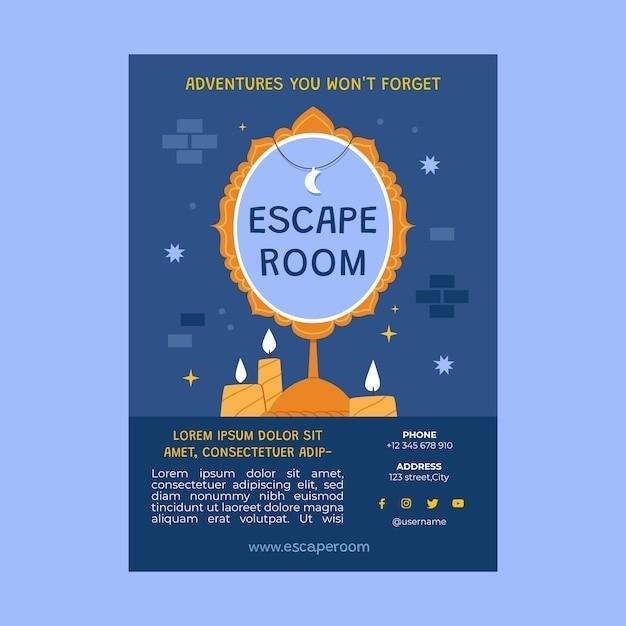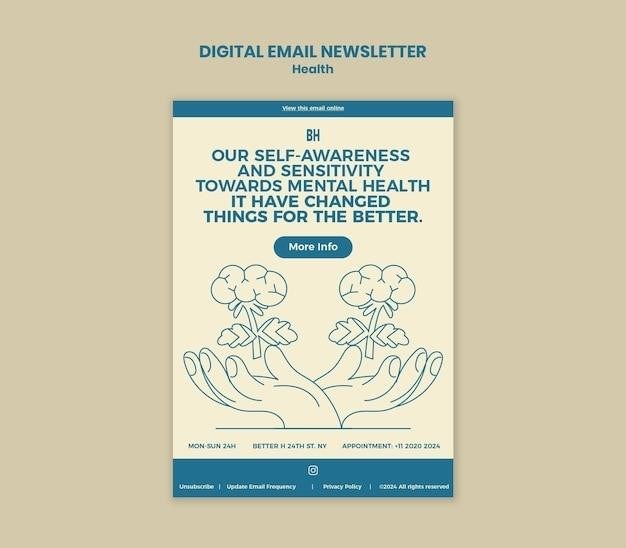
the five regrets of the dying pdf
The Top Five Regrets of the Dying⁚ An Overview
Bronnie Ware’s book, “The Top Five Regrets of the Dying,” details common regrets expressed by individuals nearing the end of their lives․ The book’s impact is global, reaching millions․ Key themes include living authentically, work-life balance, and expressing emotions․
Bronnie Ware’s Groundbreaking Work
Bronnie Ware, a palliative care nurse, spent years tending to the dying․ Through these intimate experiences, she meticulously documented the recurring themes of regret shared by her patients․ Her observations weren’t merely anecdotal; they revealed profound patterns in the final thoughts and reflections of those nearing death․ Ware’s work transcended the clinical setting, becoming a poignant exploration of human experience and the universal search for meaning․ Her compassionate approach, combining professional observation with genuine empathy, allowed her to capture the essence of these final reflections․ The resulting insights have resonated deeply with people worldwide, sparking widespread introspection and prompting individuals to reconsider their life choices․ The depth of Ware’s work lies not just in identifying the regrets but in the context provided, highlighting the human cost of unfulfilled dreams and unrealized potential․ Her meticulous record-keeping and compassionate approach to her patients’ end-of-life experiences provided a unique perspective rarely seen outside of intimate, personal care settings․
The Book’s Impact and Global Reach
Bronnie Ware’s “The Top Five Regrets of the Dying” achieved phenomenal success, transcending geographical and cultural boundaries․ Initially shared as a blog post, its profound message quickly went viral, capturing the attention of millions worldwide․ Translated into numerous languages, the book resonated with readers across diverse backgrounds, proving that the universal themes of life, death, and regret transcend cultural differences․ Its impact extends beyond simple readership; it sparked widespread discussions and personal reflections on how people live their lives․ The book’s accessibility, coupled with its emotionally resonant message, fostered a global conversation about life choices and the importance of living authentically․ The book’s continued popularity and global reach highlight the enduring relevance of its central message and its ability to connect with readers on a deeply personal level․ This widespread impact demonstrates the power of sharing personal experiences to effect positive change on a large scale․ The book’s success serves as a testament to the power of shared human experiences and the timeless need for introspection and self-reflection․
Key Themes and Common Regrets
Central to Bronnie Ware’s work are recurring themes expressed by the dying․ A predominant regret revolves around the courage to live authentically, rather than conforming to societal expectations․ Many expressed remorse for neglecting personal relationships due to an overwhelming focus on work․ The inability to express emotions honestly and openly emerged as a significant source of regret․ Maintaining meaningful friendships throughout life proved to be another common lament․ Finally, many expressed a deep regret for not prioritizing their own happiness and well-being․ These recurring themes highlight the importance of self-acceptance, healthy work-life balance, open communication, nurturing relationships, and actively pursuing personal fulfillment․ Ware’s compilation of these shared sentiments offers a poignant reflection on the aspects of life that truly matter, providing valuable insight into how to live a life with fewer regrets․

Regret #1⁚ Living a Life True to Self
This was the most frequently cited regret, highlighting the pain of unfulfilled dreams and a life lived to please others, not oneself․
The Prevalence of This Regret
Across numerous accounts detailed in Bronnie Ware’s “The Top Five Regrets of the Dying,” the overwhelming desire to have lived a more authentic life consistently emerged as the most prevalent sentiment among those nearing death․ Ware’s extensive experience in palliative care provided her with unique insight into the final thoughts and reflections of countless individuals․ The recurring theme of regret centered on the failure to prioritize personal fulfillment and aspirations over societal expectations or the desires of others․ Patients often expressed a profound sense of sadness and unfulfillment stemming from a life lived according to external pressures rather than internal convictions․ This wasn’t simply about grand ambitions left unpursued; it encompassed the smaller, everyday choices that collectively shaped a life diverging from one’s true self․ The weight of this regret underscored the importance of self-discovery and the courage to live life on one’s own terms, a lesson deeply ingrained in Ware’s poignant work․
The Pressure to Conform and Unfulfilled Dreams
Bronnie Ware’s research highlights a pervasive societal pressure compelling individuals to prioritize external validation over personal fulfillment, leading to widespread regret․ Many dying patients confessed to sacrificing their dreams and aspirations to meet the expectations of family, friends, or society․ This often involved suppressing their true passions and talents, choosing careers or lifestyles that provided security or social approval rather than personal satisfaction․ The resulting sense of unfulfillment was profound, a constant reminder of paths not taken and opportunities missed․ The pressure to conform, while often subtle, exerted a powerful influence, shaping life choices and leading to deep-seated regrets in the final stages of life․ Ware’s work serves as a stark reminder of the importance of prioritizing individual aspirations and resisting the urge to live a life dictated by external forces rather than one’s own intrinsic desires․

Regret #2⁚ Working Too Hard
Many expressed regret over prioritizing work above personal life and relationships, highlighting the importance of work-life balance and cherishing precious time with loved ones․
The Sacrifice of Personal Life and Relationships
A recurring theme within Bronnie Ware’s research, as detailed in “The Top Five Regrets of the Dying,” centers on the profound sacrifices many individuals make in their pursuit of professional success․ The relentless dedication to career advancement often comes at a steep cost, eroding precious time intended for nurturing personal relationships and creating meaningful memories with loved ones․ The dying frequently expressed deep remorse for neglecting family bonds, friendships, and romantic partnerships, recognizing the irreplaceable value of these connections․ The intense focus on career ambition often overshadows the simple joys of life, leaving a void that no amount of professional achievement can fill․ The regret isn’t solely about the missed opportunities for connection but also the lingering sense of unfulfilled potential in personal life․ This highlights the crucial need for individuals to maintain a balance between their professional aspirations and their personal well-being, ensuring that both aspects of life are nurtured equally․ The poignant reflections of those nearing the end of their lives serve as a powerful reminder of the lasting significance of human relationships․
The Importance of Work-Life Balance
Bronnie Ware’s exploration of end-of-life regrets emphasizes the critical need for a healthy work-life balance․ Many individuals nearing death expressed deep regret for prioritizing career ambitions above personal well-being and relationships․ The relentless pursuit of professional success often led to neglected family bonds, strained friendships, and missed opportunities for personal growth and fulfillment․ Ware’s findings highlight the importance of consciously integrating personal time and meaningful connections into one’s life, fostering a sense of wholeness and preventing the pervasive sense of regret many experience when facing mortality․ This isn’t about abandoning career goals, but rather about consciously integrating work and life in a manner that supports both personal happiness and professional success․ The book serves as a powerful reminder that a fulfilling life requires a conscious effort to prioritize both professional achievements and personal well-being, creating a balanced and enriching existence․
Other Significant Regrets
Beyond the top two regrets, Ware identified additional recurring themes among the dying⁚ expressing feelings openly, nurturing friendships, and prioritizing happiness․
Regret #3⁚ Expressing Feelings
Many people on their deathbeds deeply regretted not expressing their feelings more openly throughout their lives․ This wasn’t limited to grand pronouncements of love or anger; it encompassed the smaller, everyday emotions often suppressed due to societal expectations or personal insecurities․ The inability to communicate vulnerability, whether it was fear, sadness, or even joy, left a profound sense of incompleteness․ These suppressed feelings created a disconnect, both internally and in relationships․ The weight of unspoken words and unexpressed emotions created a heavy burden in their final moments․ The regret wasn’t necessarily about specific instances of unexpressed emotion, but rather the cumulative effect of a lifetime of holding back․ They longed for the freedom to have been more authentic and emotionally honest, fostering deeper connections and a more fulfilling existence․
Regret #4⁚ Maintaining Friendships
The profound regret of not nurturing friendships surfaced repeatedly in Bronnie Ware’s research․ The dying often expressed a deep longing for the companionship and support of friends, realizing the immeasurable value of these relationships only when facing mortality․ Life’s demands, career ambitions, or simple inertia often led to the slow erosion of friendships, leaving a void in their final years․ The regret wasn’t solely about lost connections, but about the missed opportunities for shared joy, mutual support, and the enduring comfort of true companionship․ Many wished they’d made more of an effort to maintain contact, to prioritize those bonds, and to cherish the simple pleasures of friendship․ This regret highlighted the enduring significance of human connection and the lasting impact of nurturing meaningful relationships throughout life’s journey․
Regret #5⁚ Pursuing Happiness
A recurring theme among those nearing death was the regret of not prioritizing their own happiness․ Many had spent their lives adhering to societal expectations, neglecting their own desires and needs in the process․ The pressure to conform, to fulfill obligations, or to achieve external validation often overshadowed personal fulfillment․ The dying often reflected on missed opportunities to engage in activities that brought them joy, to pursue passions, or simply to savor life’s simple pleasures․ They realized too late the importance of self-care, of prioritizing personal well-being, and of actively seeking out experiences that fostered contentment and inner peace․ This regret underscored the importance of defining happiness on one’s own terms and the necessity of making conscious choices to live a life aligned with one’s own values and aspirations․
Related Posts

the bean trees pdf
Looking for ‘The Bean Trees’ PDF? Explore Barbara Kingsolver’s beautiful novel about found family & resilience! Download, read, and get lost in this captivating tale today.

sold by patricia mccormick book pdf
Looking for a digital copy of ‘Sold by Patricia McCormick’? Download the PDF easily and start reading this powerful story today! Explore compelling characters and a gripping narrative.

virginia vehicle inspection checklist pdf
Don’t fail your Virginia vehicle inspection! Download our handy PDF checklist & ensure your car passes with flying colors. Get back on the road, stress-free!